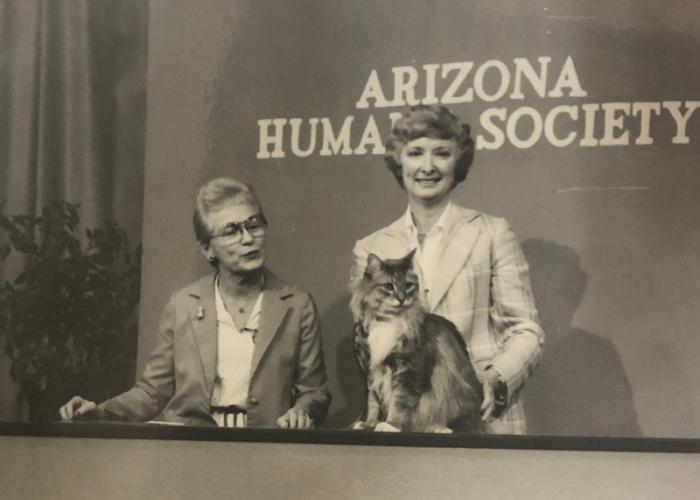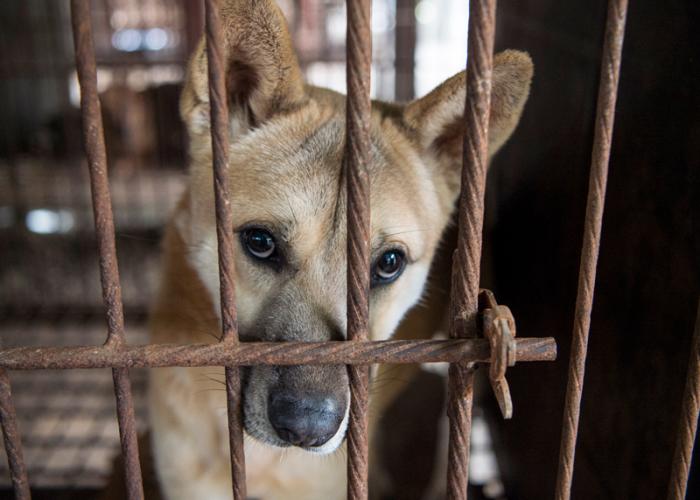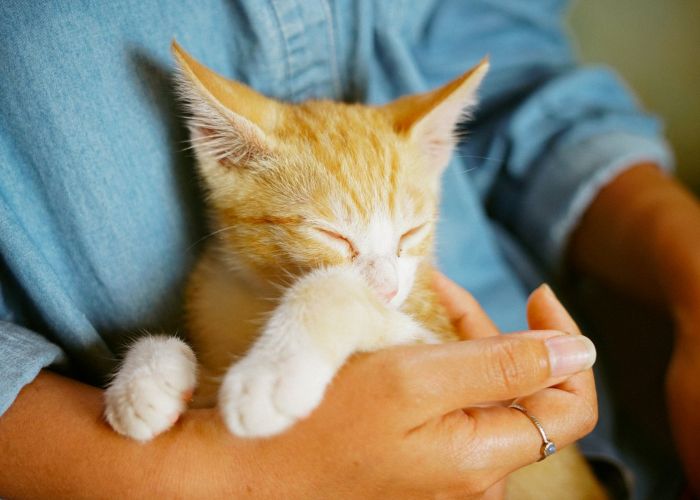Finding the owner of a dead-end microchip
Microchip Hunters shares tips for reuniting lost pets with their families

In the world of fiction, investigators who have come upon dead ends have any number of super sleuths to call on: Sherlock Holmes, Hercule Poirot, Inspector Morse, to name a few. Geniuses with unconventional methods and creative thought processes who unerringly solve the mystery by the end of the book, film or TV series.
But that’s fiction. We live in the real world. And the real world of animal sheltering brings its own brand of mystery: the case of the dead-end microchip.
Thirty-plus years ago, when companies first began marketing microchips for pets, it seemed like the ideal system for ensuring that lost pets would be reunited with their owners. But obstacles arose immediately: Competing chip companies with varying radio frequencies and proprietary technology meant that detecting a chip—and matching it to an owner—was far from guaranteed. And the shelters and veterinary clinics that implanted microchips often relied on the owner to register the chip—a crucial step that was too often forgotten.
Over the years, the development of universal scanners that can detect different chip frequencies resolved some of those issues, and many microchip companies teamed up with shelter and veterinary clinic software management systems to include free automatic registration for their brand of chip. Yet unregistered chips and outdated information persist.
So what’s a shelter staffer to do when a lost pet’s microchip (yay, at least there is one!) isn’t registered in any database or the owner information in the registry is outdated or incorrect?
“It’s just incredible when [people] have been looking for their pet, and they get this phone call that the pet is found, the pet is safe, here’s where you can pick your pet up.”
—Jeanette Garlow, Microchip Hunters and Lost Dogs of Illinois
Enter Microchip Hunters. Founded in 2016 by Lost Dogs of America director Marilyn Litt, the corps of about 30 volunteer super sleuths uses their knowledge, skills and some very creative digging to unravel the gnarliest of microchip mysteries. Under the aegis of its parent nonprofit, the group offers its services free of charge to pet owners, shelters, rescues, animal control agencies and veterinary clinics anywhere in the United States, networking with pet finder groups nationwide (and occasionally internationally) to return lost pets to their families.
Microchip Hunters never turns down a request for help, says Jeanette Garlow, co-director of the Lost Dogs of Illinois microchip search group, which covers the Midwest. In 2022, the Illinois team handled 560 cases, reaching 423 families and reuniting 269 cats and dogs with their owners.
“It’s just unexplainable,” Garlow said in an interview with Chicago TV station WCIU of the feeling she gets when a chip search results in a reunion. “It’s just incredible when [people] have been looking for their pet, and they get this phone call that the pet is found, the pet is safe, here’s where you can pick your pet up.”

Digging up clues
A microchip hunt begins with inputting the chip’s unique number into the American Animal Hospital Association’s online microchip registry lookup tool. This free comprehensive database of microchip registries provides the name and contact information for nearly every registry in North America.
Garlow estimates that about a quarter of Microchip Hunters’ investigations involve chips that have never been registered. In those cases, the hunter will contact the chip manufacturer for information on who bought the chip, then reach out to the rescue, shelter, breeder, veterinary clinic, etc., to see what owner information is available. If none of this reveals any clues, the searcher may try changing or transposing numbers, knowing someone may have made a keyboard mistake during registration.
“Sometimes it’s fairly quick, sometimes it’s hours and hours,” says Garlow. “We try all the owner info we can find—phone numbers, emails, social media. If we’ve exhausted all that, we try the same process for family members. If we still don’t hear from anyone, we just get creative. We’ve reached owners by contacting landlords, neighbors, checking obituaries [for] family members we can research.”

What keeps volunteers motivated is the knowledge that for the pets and families involved, the stakes in every hunt can be high. Dogs and cats with loving homes but no clear-cut way to identify those owners may be adopted to other families or euthanized if a shelter lacks the space to hold them. Meanwhile, shelters and rescues are spending their limited resources caring for animals when a successful microchip search could be the pet’s ticket to a quick trip home.
Garlow’s team has used background check services, ancestry sites and even Google Earth to glean possible leads. Once a pet has been reunited with their family, Garlow follows up to make sure the information in the microchip registry has been updated.
A recent case illustrates the importance of thinking outside the box. A shelter in South Carolina asked for assistance with tracing a Shiba Inu in their care whose chip led to a Japanese registry. The manufacturer in Japan had no information but suggested checking the website of another microchip registry. While waiting to hear back from the second site, the volunteer sleuth, on a hunch, checked if there was a military base in the town where the dog was found. In fact, there was.
The veterinary clinic on base had only a Japanese address and contact number but was able to provide an owner name and email address. Then the second microchip database replied, confirming the same Japanese address and phone number the vet clinic provided. Through the email address provided by the vet clinic, the hunter was able to reunite the dog with her family, who had moved back to the United States two months before and lived five miles from the base. Smiles all around.
Recruiting sleuthhounds
The case of the Shiba Inu was particularly complex, but when a shelter takes in hundreds of stray animals each year, looking up microchips for even simple cases can be a burden for staffers with limited time.
That reality has spurred some shelters to recruit their own corps of microchip detectives, says Lindsay Hamrick, director of shelter outreach and engagement for the Humane Society of the United States. “The volunteers really like this program because there’s a clear focus, they have a lot more time than shelter staffers to dig into different options, and it can be very rewarding to help reunite pets with their families.”
Some programs have been so successful that the shelter has eventually added a paid lost-and-found coordinator staff position. “Those shelters are seeing a significant increase in the number of pets being reunited with their families,” Hamrick adds.
Like the Williamson County Regional Animal Shelter in Georgetown, Texas, which took in nearly 6,500 cats and dogs in 2022, more than half of whom were brought in as lost pets. The need for help was so evident that the task of microchip tracking was turned over to a group of specially trained volunteers; eventually, the shelter added a full-time staff position to coordinate tracking efforts.
“We’re so passionate about reunions. We try to dig in as far as possible to make that happen,” says animal services director Misty Valenta, who pitches in to help with chip searches.
In addition to the AAHA microchip registry lookup tool, the Williamson shelter relies heavily on social media to research dead-end chips. “I have a Facebook account that I use just for work purposes,” says Valenta. “Sometimes I’ve searched a name, and there’s a picture of that animal and person together.”
The shelter also works closely with administrators of local social media groups for lost-and-found pets. They’ll “try to put together puzzle pieces and make connections … and give us leads,” Valenta says.
“If I could wave a magic wand, I would create one website where everyone’s chip is registered, it’s completely free, and anyone who is scanning chips in the field can go to the website to find the owners. The animal should never have to come into the shelter.”
—Lindsay Hamrick, The Humane Society of the United States
Despite these efforts, some searches will still hit dead ends, so Valenta and her team will ask Microchip Hunters to do a parallel trace. “They search databases that we don’t have access to; they can find relatives in ways that we can’t,” says Valenta.
In an ideal world, says Hamrick, all pets would be microchipped, all chips would be automatically registered in a single universal registry, and all pet owners would be diligent about updating their contact information in the registry. No more calling different chip companies, reading obituaries, tracking down relatives and neighbors.
“If I could wave a magic wand,” she adds, “I would create one website where everyone’s chip is registered, it’s completely free, and anyone who is scanning chips in the field can go to the website to find the owners. The animal should never have to come into the shelter.”
Until then, microchip detectives are working behind the scenes to get lost pets home.
“Woot Woot—I found the owner!!!” wrote one volunteer on Microchip Hunters' website after her first case resulted in a dog named Zena being reclaimed from the shelter. “What a great feeling! AND later the owner emailed me back saying she has updated the chip information!”








